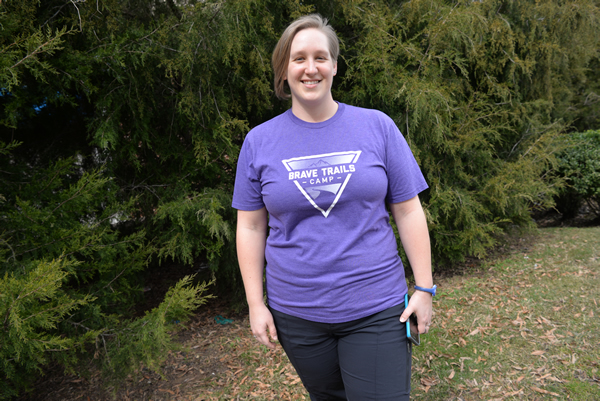Written by: Rachel Wagoner, rwagoner@timesonline.com
AMBRIDGE — More than 60 students from across Beaver County were welcomed to Ambridge Area High School on Friday for an event connecting students to LGBTQ resources and to one another.
Dylan Irvin, a senior at Ambridge, organized the LGBTQ+ Youth Inclusion event as his senior project with the help of Karen Brecht, the school’s social worker, to empower students who identify as lesbian, gay, bisexual, transgender and queer to connect them with local resources they might not have known existed.
“I want this generation to grow up with help and resources when they need it,” Irvin said, “to be able to get questions answered, to have a safe zone.”
Irvin, who is now 18, came out as gay when he was 15. While his friends at school and his mother were supportive, Irvin said it was still hard to take that step.
He wished he’d had a way to connect with other LGBTQ kids who could relate to his experience and struggles with coming out.
The event began in the morning with a panel of speakers that included members of the LGBTQ community, allies, parents, and representatives from the local support agencies and organizations. The event was paid for through a grant from THRIVE of Southwest Pennsylvania, an LGBTQ support group.
The speakers talked about their varied experiences with coming out and the resources they could provide to students and their families.
Brecht said this group of students sometimes feels overlooked or believes they are not supported, and it can be difficult to know where to turn for help. The event sought to show LGBTQ students that they are welcome and cared for in Beaver County.
“These students matter,” Brecht said. “We should take any opportunity we can to lift up students that identify this way.”
According to federal Centers for Disease Control and Prevention’s Youth Risk Behavior Survey, students who identify as lesbian, gay or bisexual are at greater risk of being bullied, being threatened of feeling unsafe at school, and experiencing dating violence than their heterosexual peers.
Additionally, LGB students are also at greater risk for experiencing mental health issues like feeling persistent sad or hopeless feelings, seriously considering attempting suicide or attempting suicide as a result of social stigma, discrimination and other factors, the report showed.
Students had time to visit tables for the various available resources, did team-building activities and listened to a featured speaker Ted Hoover of the Persad Center, an LGBTQ human-resource center in Pittsburgh. Hoover talked about trailblazers of the LGBTQ human-rights movement and how the efforts paved the way for youth today.
Groups and agencies in attendance included PFLAG, the Women’s Center of Beaver County, PRISM, Western Pennsylvania Psychiatric Care, Family Services of Beaver County, Delta Foundation, Center for Victims, Youth Ambassadors Program, Beaver County Rehabilitation Center, Keystone Wellness Programs, Beaver County System of Care, Persad Center and Sewickley Library.
Liz DeJesus and Moira Myers of PFLAG, a national advocacy group in support of the LGBTQ community, spoke during the morning panel about its services offered locally, as well as their own experiences in the LGBTQ community.
DeJesus, of Enon Valley, talked about her experience as a mother who had a child come out. A parent goes through a range of emotions, especially because they know the difficulties and the discrimination their children could face.
“But we love our kids. We want to be there for them,” she said.
PFLAG is a nonprofit organization that aims to educate, advocate and support families and the LGBTQ community. The group has 400 chapters nationwide, including a Pittsburgh chapter that covers Beaver County, and offers a variety of support meetings for LGBTQ individuals, family members, friends and allies.
Myers said the support groups are anonymous and confidential. Myers, who is a transgender woman, talked about her experience coming out in her 30s and the risks LGBTQ people face when coming out, especially in Pennsylvania, where there are no laws prohibiting discrimination based on sexual orientation or gender identity.
Myers, who graduated from New Brighton High School, said that when she was in high school in the ’90s, unlike today, information and resources were not easily accessible on the internet. Such information is readily available now, Myers said, and groups such as PFLAG are there to support students.
DeJesus said children are coming out at younger ages, often first to friends or others at school. That’s why it’s important for schools to be able to point them in the right direction of resources.
In addition to Ambridge Area, students from the New Brighton Area, Hopewell Area, Freedom Area and Beaver Area school districts attended Friday’s event. Irvin said he was amazed and surprised at the turnout, but was glad to reach those who needed it.
“I didn’t expect to touch so many kids’ lives here,” he said.
www.SunServe.org | (954) 764-5150 | info@sunserve.org | Social Media Admin










%20(1).png)
